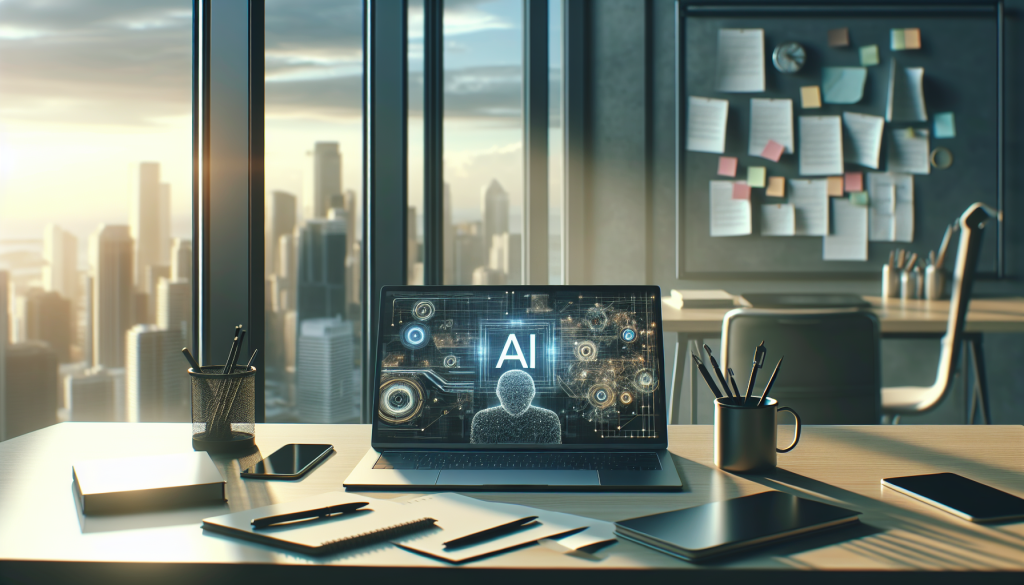
Artificial Intelligence (AI) is rapidly becoming a cornerstone of modern innovation, reshaping industries and redefining creative processes across the globe. As businesses and creators increasingly turn to AI, they are unlocking unprecedented opportunities to drive efficiency, creativity, and economic growth. AI is no longer a futuristic concept; it’s a tangible force that is accelerating innovation and transforming the very fabric of our society.
At the heart of this transformation is AI’s capability to automate and enhance various tasks, enabling industries to innovate faster and with greater precision. From manufacturing to healthcare, AI is revolutionizing traditional processes. In manufacturing, for instance, AI-powered predictive maintenance can forecast equipment failures before they occur, drastically reducing downtime and maintenance costs. In healthcare, AI is helping to expedite drug discovery, personalize patient care, and even diagnose illnesses with remarkable accuracy.
The retail and e-commerce sectors have also felt the transformative power of AI. By analyzing vast amounts of data from browsing histories, purchase patterns, and customer demographics, AI enables retailers to understand consumer behavior like never before. This leads to hyper-personalized shopping experiences that cater to individual needs and preferences, enhancing customer satisfaction and loyalty.
AI’s influence on innovation extends beyond automation to the very way we invent and create. AI is emerging as a new general-purpose method of invention, reshaping research and development (R&D) processes. It allows for the creation of advanced simulations and 3D models that enable more effective experimentation and testing. This capability is key in industries like aerospace and automotive, where prototyping can be immensely costly and time-consuming.
Generative AI is another frontier where AI is pushing the boundaries of creativity. By using AI algorithms, artists, designers, and writers can now augment their creative processes, generating novel ideas and solutions that might not have been conceivable before. For example, generative AI tools can synthesize a large volume of concepts into much stronger, innovative ideas during brainstorming sessions, thereby overcoming one of the most daunting challenges in creative industries.
Moreover, AI is extending its transformative reach into more unexpected realms such as finance and agriculture. In finance, AI-driven algorithms are enhancing decision-making by assessing risks with lightning speed and precision, optimizing investment strategies, and even detecting fraudulent activities more effectively than traditional methods. In agriculture, AI applications are revolutionizing practices by offering insights into crop health, weather forecasts, and soil conditions, thereby optimizing yield and reducing environmental impact.
The integration of AI in innovation processes is not merely an enhancement but a fundamental shift in how R&D is conducted. AI-driven innovation enables faster technology development and offers businesses quicker go-to-market capabilities. By leveraging vast datasets and machine learning models, companies can iterate more efficiently, thereby fostering a more agile and responsive innovation environment.
Despite these significant advancements, the adoption of AI in innovation does pose certain challenges. Ethical considerations, data privacy, and potential biases in AI algorithms are areas that require ongoing scrutiny. It is crucial for industries to adopt responsible AI practices, ensuring transparency and fairness in AI-driven decision-making.
In the realm of scholarly research, AI is making significant contributions as well. It aids in the organization and analysis of enormous amounts of data, enabling researchers to identify patterns and insights that might otherwise remain hidden. This capability not only accelerates academic discoveries but also broadens the scope of research topics, as indicated by the growing body of scholarly work on AI-driven innovation.
As we look to the future, it’s clear that AI and innovation will continue to be intrinsically linked. Industries that embrace AI’s potential are poised to lead in their respective fields, capitalizing on newfound efficiencies and capabilities. Creative processes, now augmented by AI, will likely produce groundbreaking works that push the boundaries of human imagination.
AI is not just transforming industries; it is reshaping our approach to creativity and problem-solving, fostering a new era of innovation that is limited only by the bounds of our imagination. As AI continues to evolve, its role in innovation will undoubtedly expand, heralding a future where the convergence of technology and creativity drives progress in ways we have yet to fully imagine.